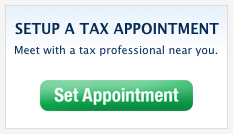Tips to Avoid Getting Audited
Few things in American society are as dreaded as being audited by the Internal Revenue Service (IRS). The tax code is so complex, it is almost a given that if the auditors dig deep enough and look hard enough eventually they will find mistakes and then charge all the relevant penalties (and interest for older errors). The general process is that the IRS computers compare your newest return to your previous returns and the differences are calculated providing a “DIF Score”. If this score is high, indicating a significant change in your filing, it means your return is given additional attention and perhaps audited. Although the DIF Score factors used to determine who gets audited and who does not is kept secret, there are certainly things that will make it more likely that you will be audited. Further, there are specific things you can do to lower your chances of being audited.
First and foremost, use your common sense when filing your annual tax return. If something seems too good to be true, it probably is. So just because you have recently opened a home office does not mean you can suddenly claim your mortgage payments for the year or the total value of your home as a business deduction. People making large and unusual claims on their taxes are automatically highlighted for closer scrutiny, so if you do make a large and unusual deduction or claim for a tax credit on your return, be very sure well in advance that it is legitimate. If you are unsure about a possible deduction or tax credit, read up or consult an expert before you claim it.
Fair or not, there are certain categories of taxpayers that are almost always more likely to face an audit than other people. One of these groups are people that earn more than $100,000 per year because the penalties and interest received from people with high incomes is much more likely to justify the IRS expense in auditing the person. Another group are people that are self-employed because they have much more leeway to hide income or claim illegal deductions by treating personal expenses as business ones. People that earn a lot of their income from cash transactions – like professional gamblers, doctors, and servers – are also more likely to be audited since they have better opportunities to under report their actual earnings. People in any of these groups are more likely to be audited, but people in more than one of these categories at the same time are almost guaranteed to be audited.
Of the 1.39 million audits conducted in 2008, only 310,429 were full field audits. Most audits do not require calling in the person, but instead are handled through correspondence. This means that if you are identified as someone that the IRS intends to scrutinize more closely, if you have all of your documentation on hand to substantiate your claims, you may be able to resolve the issue without going through a full, in person, audit process. Needless to say, you should be able to substantiate any deduction or tax credit claimed, so if you have the supporting documentation readily available and provide it to the IRS when they ask for it through the mail, you can avoid having to deal with the more intense scrutiny stemming from a full audit.
Despite DIF scores and other “red flags” that make audits more likely, there is also a large portion of audit targets that are generated at random, simply to keep everyone alert to the possibility. Since the process is random, there is no possible way to avoid an audit if your number comes up in this way, so no amount of pre-emptive measures are guaranteed to make sure your are not audited.
Have a tax question? Ask one of our tax professionals.



